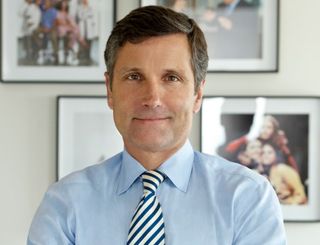NBCU’s Burke Sees Program Glut Slowing

NBCUniversal CEO Steve Burke says that he expects the growth in new original scripted shows to slow.
Speaking at the Bank of America Merrill Lynch Media, Communications & Entertainment Conference on Wednesday, Burke said he thought NBCU could improve its financial performance, that the ad market was strong and that the stock market plunge in reaction to fears that cord cutting could reduce pay TV subscribers was an over-reaction.
Burke said an “almost insatiable demand for professionally produced great video programming” was driving what some see as a glut in programming. He said streaming video players like Netflix, Hulu and Amazon are willing to pay a lot of money when NBCU and its rivals create popular original shows.
“We have two of the top five cable scripted shows, Mr. Robot and The Royals, and the amount of money people are willing to pay for those series and pay for those series right away—not having to wait the traditional 4 or 5 years that we used to have to wait—encourages people—ourselves and others to take those creative swings,” he said.
But Burke said he did not think the sheer volume or production would continue to increase at its current rate. “I think people are starting to feel and realize there is too much here,” he said. “But it’s a logical response to the fact that you can get paid for these shows in so many new ways and people are trying to do things to define their networks and stand out and have ratings go up.”
Ratings have not been going up for most networks and Burke pointed to reruns of shows, particularly off-network syndicated shows, as the culprit. “You can get repeated programming on a time shifted basis so many different ways you don’t need to sit in front of linear television to get it,” he said.
That’s not true of live sports, he said. NBCU does not believe sports ratings will decline and that it’s long-term deals for sports rights make sense, including rights to the Olympics through 2032. “Our bet is whatever happens to the world technologically, whatever viewing option people have in 2032, the safest bet we can think of is that families will want to sit down and watch the Olympics and the value of that to advertisers will be great much greater in 2032 than it is today,” he said. Burke noted that NBCU’s deal with the Olympics includes provisions that allow it to take advantage in changes of viewing technology.
Broadcasting & Cable Newsletter
The smarter way to stay on top of broadcasting and cable industry. Sign up below
The ad market is strong, Burke said. After a relatively weak upfront, “scatter is very strong.” He said that led him to believe that the upfront softness was caused more by advertiser holding back budget than TV dollars shifting to digital.
Still both on the network side and on the cable distribution side growth is likely to be slower in the next five years than it was in the last five years. Nevertheless, the plunge in the value of media stocks over the last few weeks was an overreaction, Burke said.
“There is no question in my mind on the margin there are pressures that the cable distribution business is facing that are more intense than before,” he said. “You’re talking a quarter of a percent or half a percent in sub trends over the course of a year. When 21 million people every month pay you a check of $100 and they’re consuming your products hours and hours every day, these marginal changes get amplified and I think when $50 billion worth of market cap flies out the window in a week, it’s an over-reaction. I think these businesses are very robust and will be around for a very long time. They will just have lower growth rates than they’ve had in the last five or 10 years.”
Since being bought by Comcast, NBCU has posted strong growth. But Burke said, “In my opinion, we’re still underperforming,” he said, adding that the group has several businesses that could have “turnaround-like growth prospects we’ll realize in the next 3 to 5 years.”
One area that has to be stronger is NBCU’s websites. “We need to get better in terms of taking our existing video content and bringing it to consumers directly via the Internet. We have about 50 different websites--NBCNews.com, USA.com, E Entertainment.com--and those websites in my opinion, we are not as strong as we need to be, we’re not as smart as we need to be, we’re not as cutting edge as we need to be."
Burke says that was part of the thinking behind NBCU’s $200 million investments in Vox Media and Buzzfeed. “We think they’re companies with very bright futures. But the real reason we did it was to get smarter,” he said. "Our traditional and digital business will be better for being around people who have proven they are so good at what they do.”
Burke also pointed to Spanish-language network Telemundo as a situation where it could make big financial gains as it closed the gap with industry leader Univision. He said that Telemundo’s ratings have grown at 10 p.m. and that the network would be implementing a strategy to improve ratings at 8 and 9 p.m. as well.
Jon has been business editor of Broadcasting+Cable since 2010. He focuses on revenue-generating activities, including advertising and distribution, as well as executive intrigue and merger and acquisition activity. Just about any story is fair game, if a dollar sign can make its way into the article. Before B+C, Jon covered the industry for TVWeek, Cable World, Electronic Media, Advertising Age and The New York Post. A native New Yorker, Jon is hiding in plain sight in the suburbs of Chicago.

